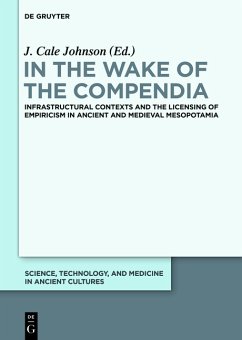In the Wake of the Compendia presents papers that examine the history of technical compendia as they moved between institutions and societies in ancient and medieval Mesopotamia.
This volume offers new perspectives on the development and transmission of technical compilations, looking especially at the relationship between empirical knowledge and textual transmission in early scientific thinking. The eleven contributions to the volume derive from a panel held at the American Oriental Society in 2013 and cover more than three millennia of historical development, ranging from Babylonian medicine and astronomy to the persistence of Mesopotamian lore in Syriac and Arabic meditations on the properties of animals. The volume also includes major contributions on the history of Mesopotamian "rationality,” epistemic labels for tested and tried remedies, and the development of depersonalized case histories in Babylonian therapeutic compendia. Together, these studies offer an overview of several important moments in the development of non-Western scientific thinking and a significant contribution to our understanding of how traditions of technical knowledge were produced and transmitted in the ancient world.
This volume offers new perspectives on the development and transmission of technical compilations, looking especially at the relationship between empirical knowledge and textual transmission in early scientific thinking. The eleven contributions to the volume derive from a panel held at the American Oriental Society in 2013 and cover more than three millennia of historical development, ranging from Babylonian medicine and astronomy to the persistence of Mesopotamian lore in Syriac and Arabic meditations on the properties of animals. The volume also includes major contributions on the history of Mesopotamian "rationality,” epistemic labels for tested and tried remedies, and the development of depersonalized case histories in Babylonian therapeutic compendia. Together, these studies offer an overview of several important moments in the development of non-Western scientific thinking and a significant contribution to our understanding of how traditions of technical knowledge were produced and transmitted in the ancient world.

